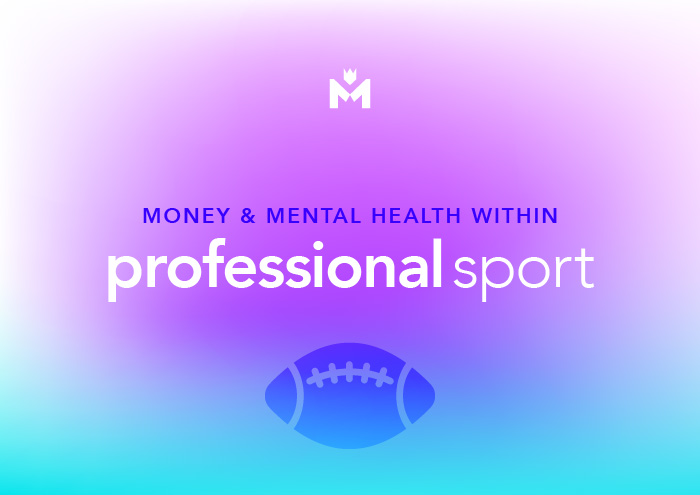The Kiwi dream of a career in professional sport is not always what it’s hyped up to be; as part of Money Empire’s Money and Mental Health blog series, we had an honest and open chat to Cam Kilgour, previous Assistant Manager of a professional rugby team, about career highs, lows and money woes.
Cam Kilgour has had a dream career working in NZ Rugby, with highlights being his role as Assistant Manager for a professional rugby team, and a stint as Tournament Director of the South Island’s Sevens Tournament in Timaru from 2010 to 2013 when he was Rugby Manager for a Southern Province.
Cam now lives in Auckland and mostly volunteers his time as a life coach and mentor to young rugby players, with a passion for helping them deal with depression and issues around mental health, alongside physical training and fitness.
Cam bravely opened up to Money Empire about his first-hand experience with depression after moving to Canterbury and dealing with the ‘come down’ he felt after years spent at the top of the game; working and travelling alongside some of the best rugby players in New Zealand. He hopes that by sharing his experience, it will shine light on a typically taboo subject and help bring normality to issues of depression faced by many young Kiwis, particularly upcoming professional athletes.
“Back when I was working for a professional rugby team, there was much more of a ‘toughen up’ attitude and people were less reluctant to talk about their mental health. These days, people are more aware of the mental skill involved in rugby and how being physically and mentally fit is what sets you up in life – for sport, and in general,” Cam shares. “I’ve found, from my own personal experience of being in a dark place with depression, that the three best ways to improve mental health are socialising, eating right and exercise.”
However, as we’ve seen throughout this series, money and mental health are inextricably linked, and create a flow-on into other aspects of our lives. Cam goes on to explain: “The problem with a lot of professional athletes is their income can change in an instant. It’s fluid from one contract to the next, but there is a constant pressure to be looking good and keeping up appearances. Players I’ve dealt with who are struggling with depression don’t have the money to go out and socialise, so they stay home and when they don’t feel like they can afford to spend money on healthy food, they reach for easy and affordable options like KFC – which all leads them to spiral downward to a deeper place of depression.”
“I’ve seen so many young guys get into this vicious cycle, especially when it comes to money, pride and not being able to socialise because of the financial pressure. They know their mates will shout them a drink – but they’ll feel too stink about it, so they’ll make an excuse to stay at home,” Cam adds. “It’s hard too, because many of these guys are not only supporting themselves, but their whole families – parents and siblings. Often for Pacific Island rugby players, money is sent home to support family living in the islands – so there is added strain and pressure on finances, which doesn’t always show outwardly.”
It’s not only internal pressures that are contributing either. “What makes it hard is the ‘rock star’ treatment that rugby players receive; these guys are like gods here in New Zealand. It’s this culture that fuels the need to keep up appearances, and it also leads to that feeling of emptiness after coming back from overseas, or missing out on a contract – it’s a big blow to drop from way up high to ordinary everyday. This challenges a lot of the guys I work with; it’s a lot to deal with mentally, spiralling many of them into depression,” Cam says.
However, Cam is committed to working towards a solution, one young player at a time. “My number one piece of advice for anyone struggling with money pressure and pride leading to isolation and depression – is to get someone alongside you; someone who can help sort out your finances, so you can take charge of that aspect of your life again. Then get socialising, get your fitness back up and choose healthier food options. This has worked for me personally and it’s the advice I’m giving to young guys all the time.”
Kayne Wahlstrom, founder of Money Empire says, “We love nothing more than helping clients work through their financial situations and come out the other side with a better outlook on life. Talk to us if there’s anything we can do to help get your finances back into shape.”
“Most importantly, if you’re feeling stressed about money matters and their effect on your mental health, call or text one of the fantastic mental health helplines available 24 hours a day, seven days a week for advice, or if you just need to talk.”
WHERE TO GET HELP:
Lifeline – 0800 543 354 or (09) 5222 999 within Auckland
Depression Helpline – 0800 111 757 or free text 4202 (to talk to a trained counsellor about how you are feeling or to ask any questions)
Anxiety phone line – 0800 269 4389 (0800 ANXIETY)




